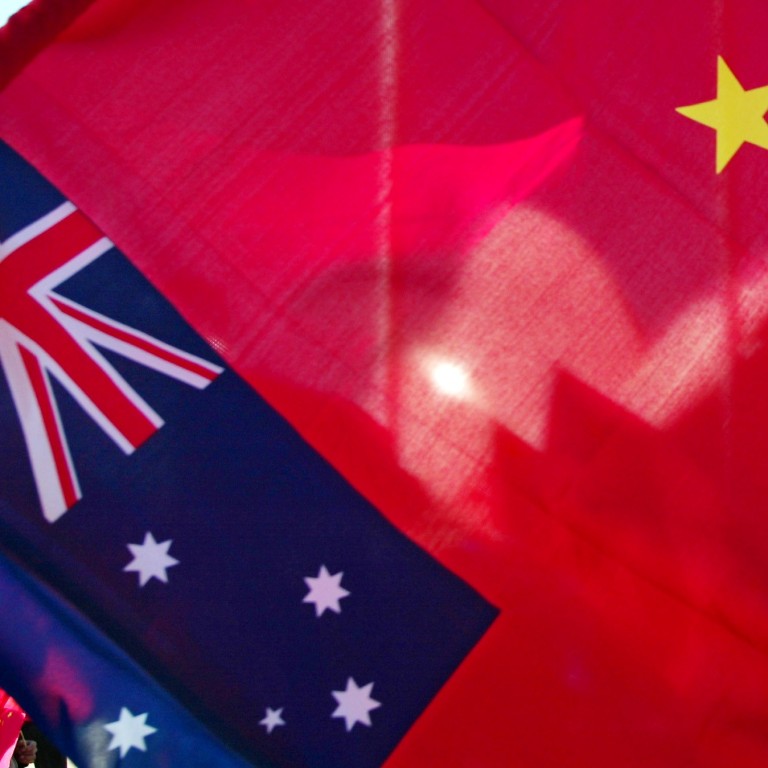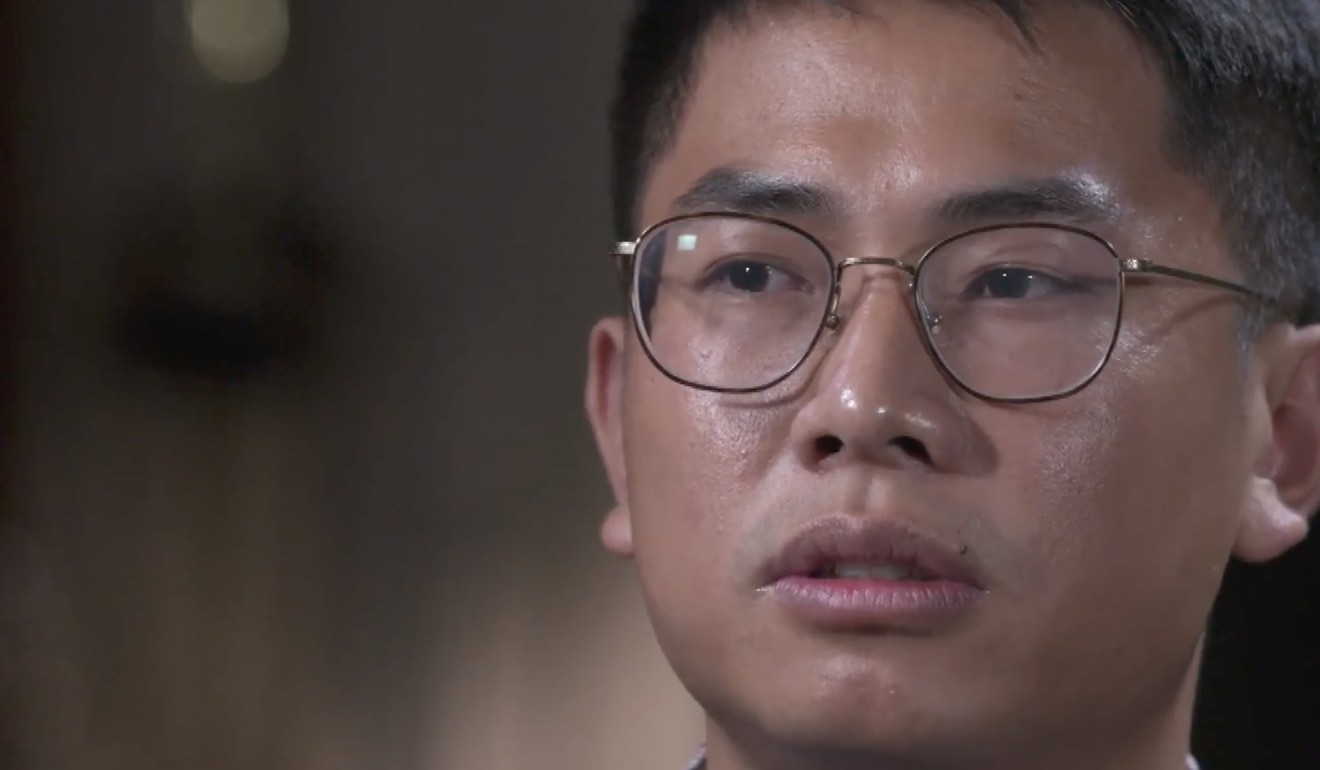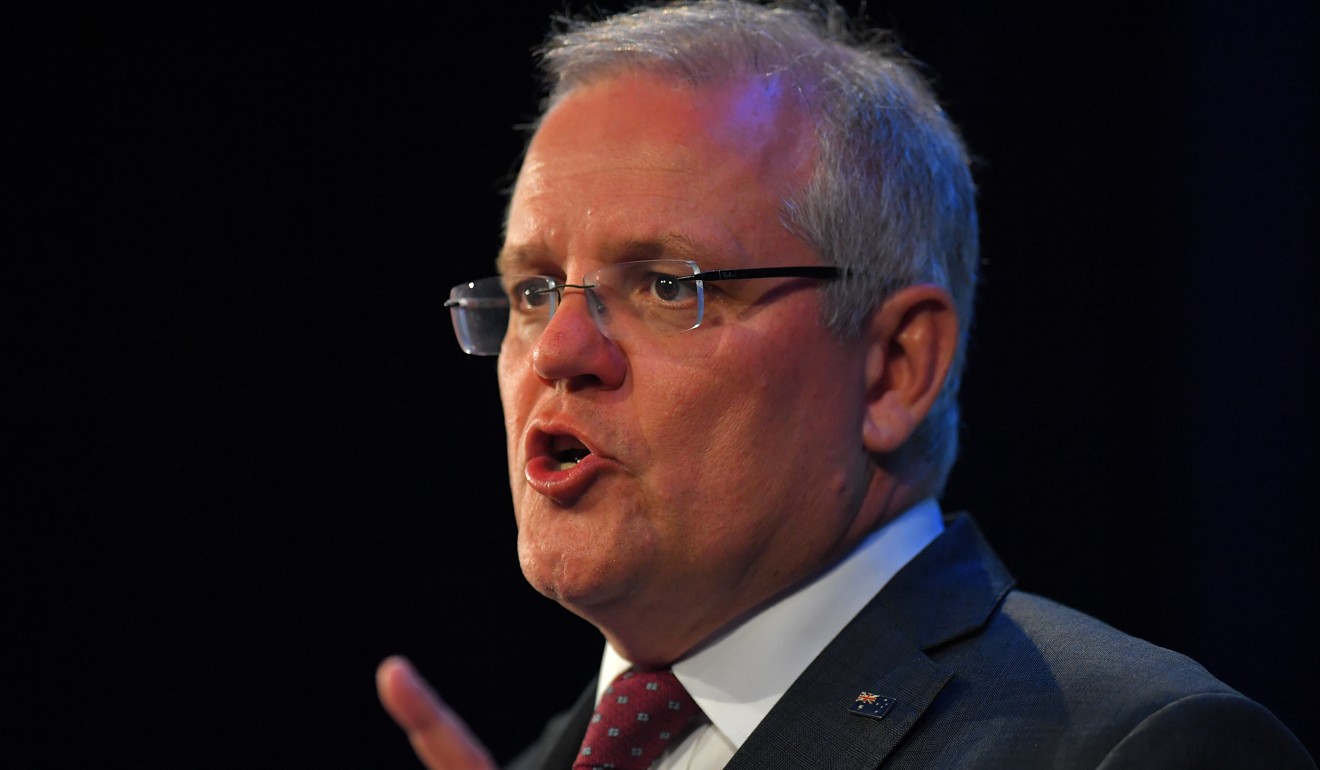
Australia probes spy plot amid claims of Beijing’s political meddling in Taiwan, Hong Kong
- Explosive accusations about an alleged attempt to infiltrate parliament follow the defection of self-confessed spy Wang Liqiang
- Though retired Taiwanese intelligence official pours cold water on Wang’s claims, analysts say allegations will add to wariness about China’s intentions
In a rare public statement, the head of the Australian Security Intelligence Organisation (ASIO) said on Sunday that his agency was “actively investigating” allegations that a Chinese spy ring attempted to cultivate a Melbourne-based luxury car dealer, Nick Zhao, as a candidate for the federal parliament.
Zhao, 32, was found dead in unexplained circumstances in March after reportedly informing ASIO of an alleged attempt by another Melbourne businessman, Brian Chen, to recruit him as a puppet candidate for Beijing in the Melbourne seat of Chisholm. Chen has denied knowing Zhao or working as a Chinese intelligence operative.
Australian Prime Minister Scott Morrison on Monday described the allegations as “deeply disturbing and troubling” while also cautioning against “leaping to conclusions” about the case.
“I can assure Australians that under our government, the resources have never been stronger, the laws have never been tougher, and the government has never been more determined to keep Australians free and safe from foreign interference,” Morrison said.

The explosive claims, made by associates of Zhao as well as multiple Western security sources, according to Nine media group, come as a 27-year-old mainland Chinese man is seeking asylum in Australia after making a raft of separate allegations of political meddling by Beijing.
Despite Wang’s claims, one of the booksellers, Lam Wing-kee, said he had reservations about the alleged spy’s role.
Self-proclaimed Chinese spy William Wang who defected to Australia is a fraud and wanted criminal, China says
“I have never met this person before,” he said. “This guy [Wang] said he was responsible ... but some of the details he gave do not match what I know.”
Shanghai police on Sunday released a statement claiming that Wang was a convicted fraudster who had been given an 18-month suspended sentence in 2016 by a court in Fujian and was under investigation in a separate fraud case involving a car import scheme.

Weng Yen-ching, former deputy director of Taiwan’s Military Intelligence Bureau, said Wang had misstated the name of the Joint Staff Department at the Central Military Commission and was too young to be put in charge of important espionage operations.
“I believe it is a common practice for almost all countries around the world to send their experienced men abroad to take charge of something big or important,” Weng said.
“At just 26, he would have been too young to take charge of these things. He was just 21 years old when he was supposed to have been involved in the abduction of the Hong Kong book publisher Lee Bo in 2015.”
Chinese spy who ‘infiltrated’ Hong Kong, Taiwan, defects to Australia, report says
Weng also said Australian authorities would not have allowed Wang to speak in public if they found his claims credible, and suspected he could be an informant rather than a spy.
China’s foreign ministry on Monday said Beijing had never tried to meddle in other countries’ internal affairs and was not interested in doing so. Spokesman Geng Shuang said some Australian media outlets had fabricated allegations of interference and had “become seized with imaginary fears” on issues related to China.
“However bizarre the story, lies are still lies in the end, whatever new guise they wear,” Geng said.
The Global Times, a Chinese state-run tabloid known for its nationalistic views, on Sunday described Wang’s account as “a sheer lie” aimed at smearing China.

On Monday, the tabloid’s editor, Hu Xijin, claimed that Australian media had reported Wang’s allegations as part of Western efforts to help the pro-democracy camp win seats in Hong Kong’s district council elections. Pan-democrat candidates took control of 17 out of 18 district councils in the election on Sunday, delivering a thumping defeat to the pro-Beijing establishment after nearly six months of anti-government protests.
The espionage allegations have sent shock waves through Australia’s political establishment, spurring calls for heightened vigilance against foreign interference in some quarters but also cautious scepticism in others.
China wants to ‘take over’ Australian politics, former spy chief warns
John Blaxland, a professor at the Strategic and Defence Studies Centre at Australian National University (ANU), said he found Wang’s story generally credible due to the combination of “capability, motivation and intent”.
“The correlation of those factors suggests that even if there is an element of this which is not quite correct, the broad direction of it is probably correct,” said the former Australian intelligence officer.
But the Australia-based Neican, a China analysis newsletter edited by Macquarie University researcher Adam Ni and ex-government official Yun Jiang, said the alleged spy’s story was “unconvincing so far”. It described the evidence he had presented as “general and vague in nature”. The newsletter raised questions about his young age, the shoddy fabrication of a South Korean passport he was given for travel to Taiwan, his repeated misstating of the name of the Joint Staff Department, his claim of operating in multiple jurisdictions in such a short period of time, and his apparent lack of a military rank.

Wang’s story comes amid rising concern about Chinese interference in Australia, which sparked the introduction last year of new laws against foreign interference and recent guidelines to help universities safeguard against such meddling.
Wu Lebao, a Chinese dissident living in Canberra, said he also had doubts about Wang’s identity and intentions but believed Australia nevertheless had to address its “unhealthy relationship” with China.
“It has become clear that China wants to control Australia, from the economy to politics,” Wu said.
Alex Joske, a researcher at the Australian Strategic Policy Institute, said the claims would pile pressure on authorities to enforce the recently passed anti-foreign interference laws.
Australian ‘phobia’ of China’s rise has left it vulnerable, former PM Paul Keating warns
“The activities described in media reports are already illegal in Australia, and can be dealt with using existing legislation,” Joske said. “However, we have yet to see these new laws used for a prosecution.”
Michael Clarke, an associate professor at ANU’s National Security College, said the developments added to a “clear narrative that has solidified over the past 12 to 18 months on China – that it is assertive and revisionist, and is seeking to influence Australian politics and policy by fair means and foul.”
Blaxland said the allegations would add to the wariness and concern about Beijing’s intentions.
“You can still deal with each other,” he said. “You deal with each other diplomatically, you deal with each other commercially, but you do so with your eyes well and truly open to what’s at stake and the games that are being played. That’s what has changed.”
Blaxland added that Australia’s response would be closely watched by its neighbours in the region.
“Everyone else in the neighbourhood is looking at this, everyone else in Southeast Asia is worried about what this might mean, and looking at how Australia responds,” he said. “Because what Australia does sets the benchmark.”
Additional reporting by Lawrence Chung

